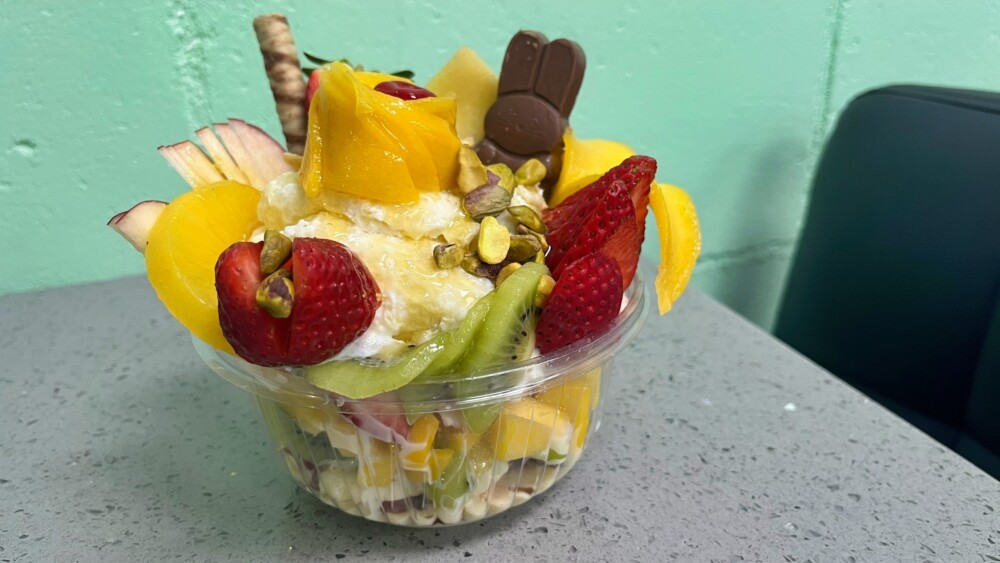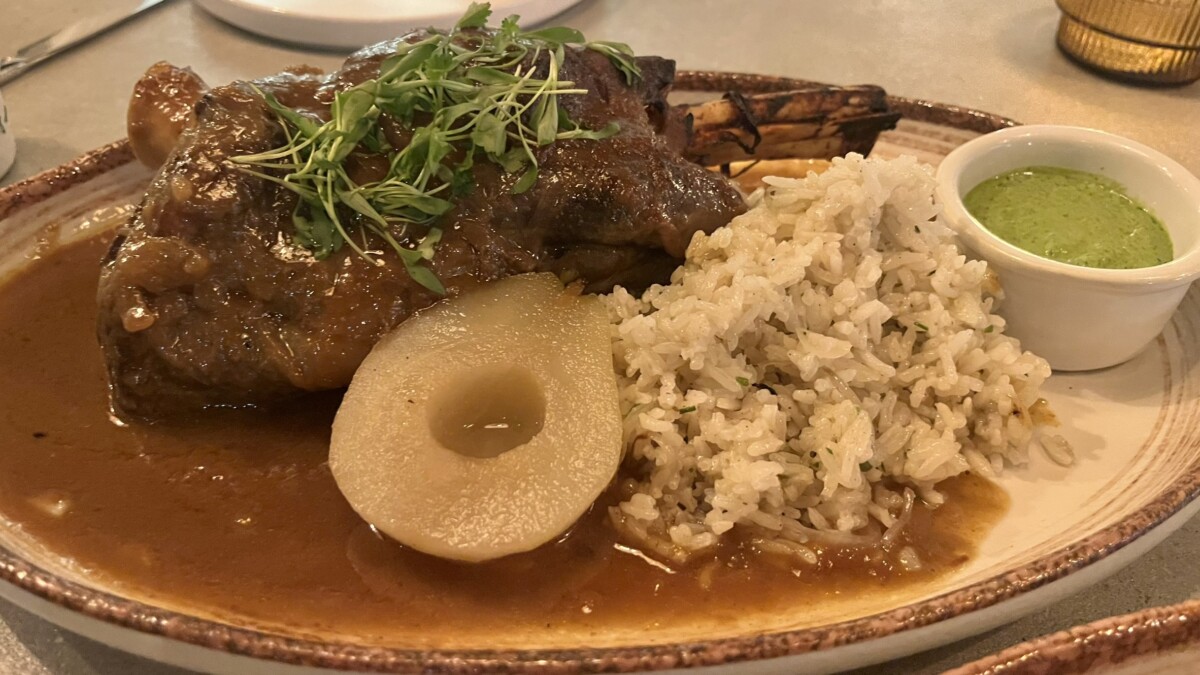
There is no standard sweet to serve on Eid al-Fitr. On March 29, Muslim residents of Jacksonville will mark the end of Ramadan with milk pudding, butter cookies, gulab jamun, and almond candy, depending on their ancestry and family traditions.
For celebrants who put fruit at the center of their holiday tables, a newish Southside business has emerged as the leading local choice for elaborate sculptural displays. While hosts who prefer to slice their own mangoes and source their own dates may still shop the produce aisles at grocers such as Apna Bazaar, very few home cooks have the patience or vision to produce the dioramic trays of dipped berries, citrus curls, and carved kiwi rosettes that are a signature at Fruit Time on Gran Bay Parkway.
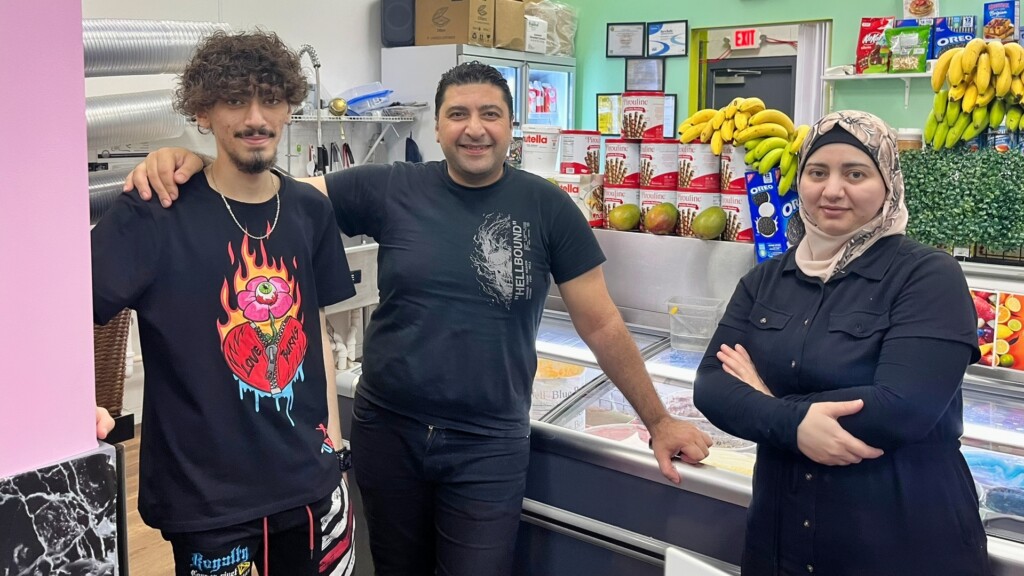
“Every day, it’s something new,” Nizir Al Darwish said of the landscapes his Syrian family creates. As the youngest member of the threesome, and the one most comfortable speaking English, Al Darwish is charged with working the counter of their strip mall shop and posting Fruit Time’s concoctions to social media. For Eid next month, he anticipates those vibrant videos set to club music will yield “some big orders.”
Still, his father, Amer Al Darwish, claims Instagram reels can’t fully capture his festival trays, the largest of which sell for roughly $200. Pantomiming a spoon scooping up a serving of fruit, he explained, “The more down you go, it gets better.” There are cashews, pistachios, and sweet cream concealed at the base of each assemblage.
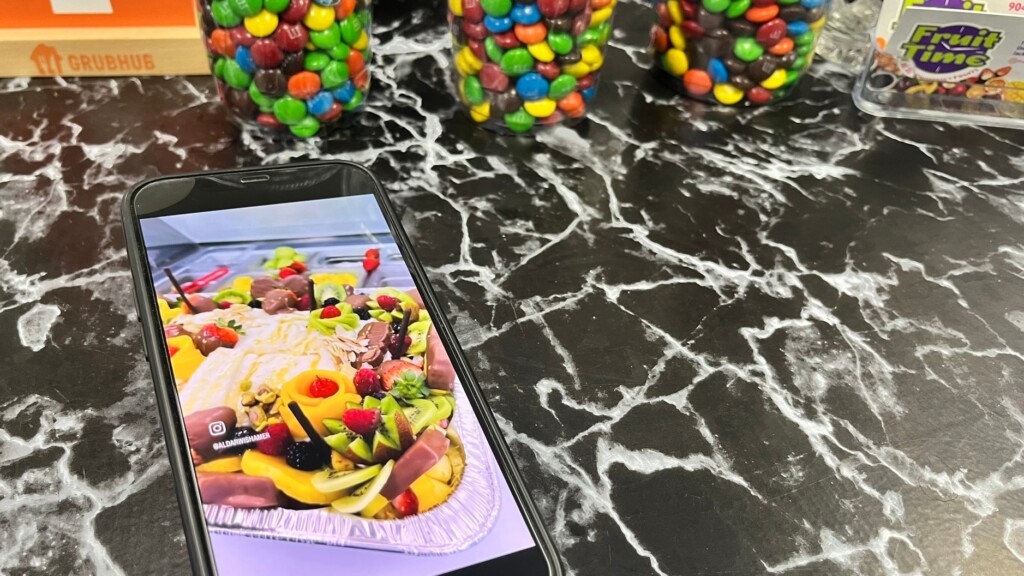
By contrast, Fruit Time isn’t supposed to be a secret. But passers-by headed for the neighboring jiu jitsu gym or nearby vape shop might not guess at the Levantine customs at play in what looks like just another acai outlet.
On a recent Monday evening, Cheyenne Belville of Yulee stopped by the store because a relative hospitalized at Baptist Medical Center South wanted ice cream. “This seemed close enough,” she said before ordering an appropriately heightened Empire Cup, built from bananas, pineapples, strawberry cream, honey, and condensed milk. Fruit Time also offers smoothies, fruit-topped waffles and toasts smeared with nut butters and sweet cream.

During the three days of Eid, though, fruit itself is paramount.
“I remember walking with Baba to the farmer’s market near our flat and loading up on fruit,” said Karim Shamsi-Basha, a Syrian-born food writer who now lives in Alabama. “We would buy a ton of apples, peaches, clementines, cactus pears, apricots, berries and more dates than it was possible to consume.”
Shamsi-Basha recalled his mother would cut and arrange the sugar-packed fruit—said to restore energy swiftly following a long fast—on fancy platters for guests, warning her young son not to pilfer any of the bite-sized cherries and grapes that filled out the tray. He perpetually disobeyed, much to his mother’s barely hidden amusement.
Although Shamsi-Basha’s mother died in the 2023 Turkey-Syria earthquake, he and his sister still prepare ma’moul, knafeh, and intricate fruit platters for Eid, just as she did. “We both remember our parents and cry together,” he said of their annual Staten Island gathering. “It can get very emotional that time of year.”
At Fruit Time, Nizir Al Darwish’s mother, Samara, makes the ashta that holds together the shop’s most ambitious arrays, both literally and aesthetically. Typically described as Arabic clotted cream, ashta is a pastry filling, dessert topping, and standalone treat that consists of rosewater-scented whole milk, vinegar and cornstarch. Samara Al Darwish heats a pan of ashta every morning, since the Al Darwishes insist on freshness for their fruit and its accompaniments.
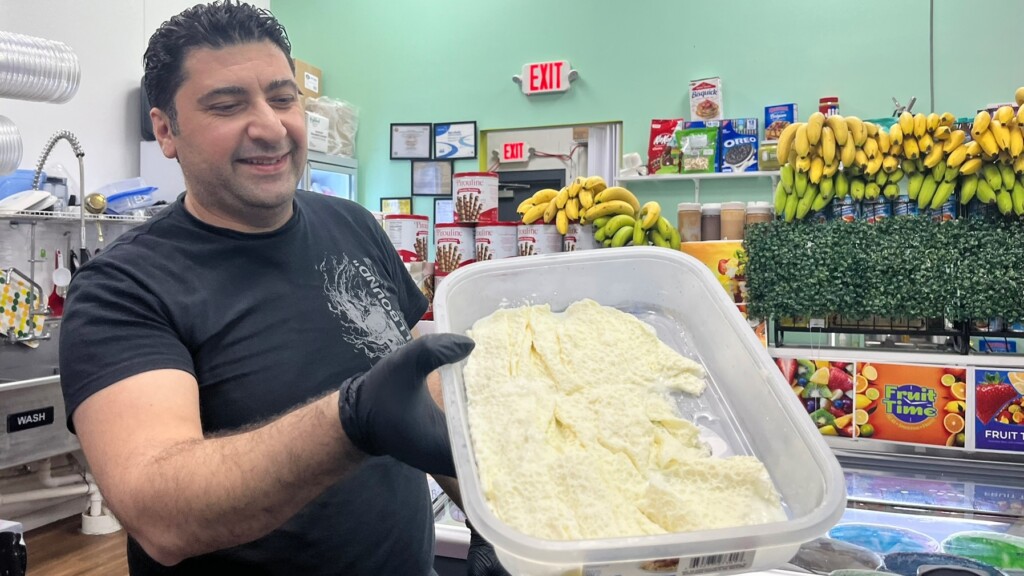
It’s a philosophy they adopted when running a fruit stand in Damascus. The family immigrated to the U.S. nine years ago but weren’t able to reopen their business until June 2024. Save for the name, Nizir Al Darwish said, the new operation “is the same” as their store in Damascus.
That means the fruit is ripe, the compositions are complex, and it’s “just family” at the shop, which stays open from 11 a.m.-10 p.m. every day.
For a holiday such as Eid al-Fitr, which emphasizes family bonds as well as community closeness, it’s a fitting arrangement.
Fruit Time, 13830 Gran Bay Pkwy., Suite 501, 904-677-4499


